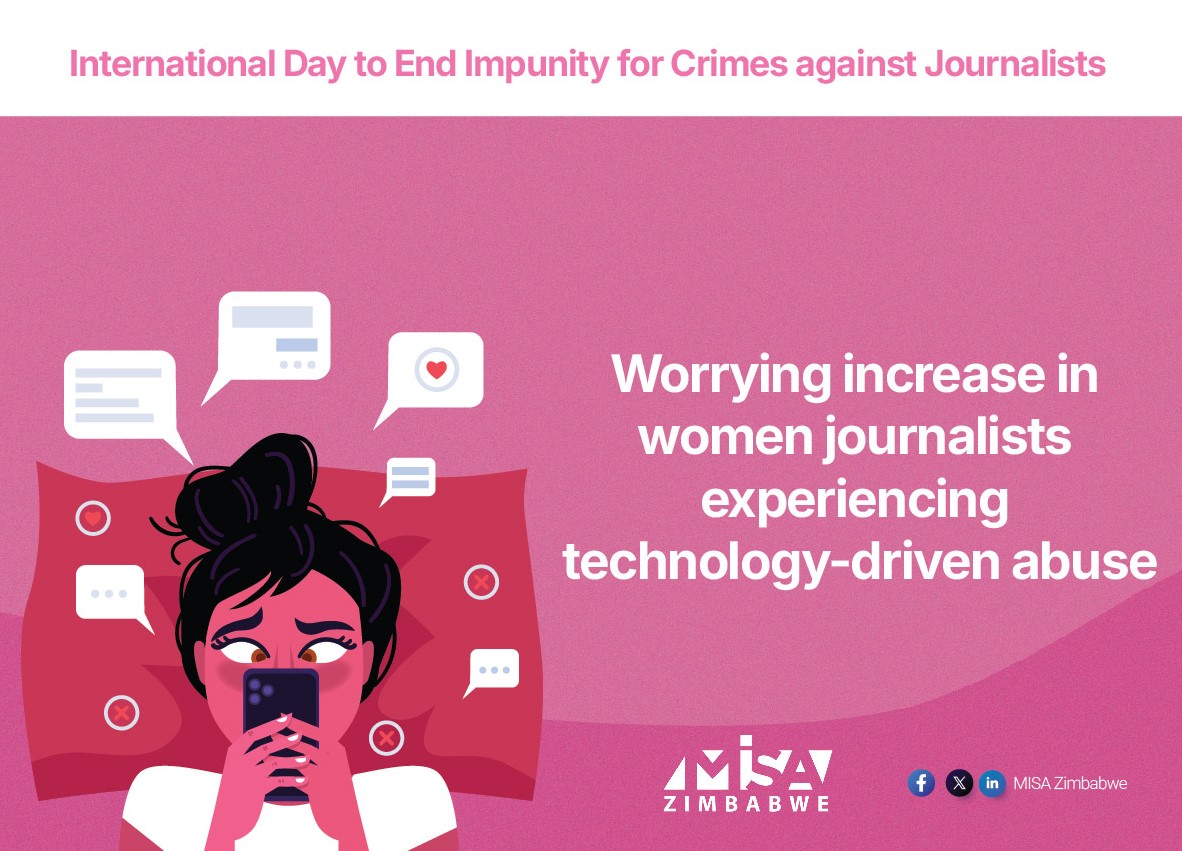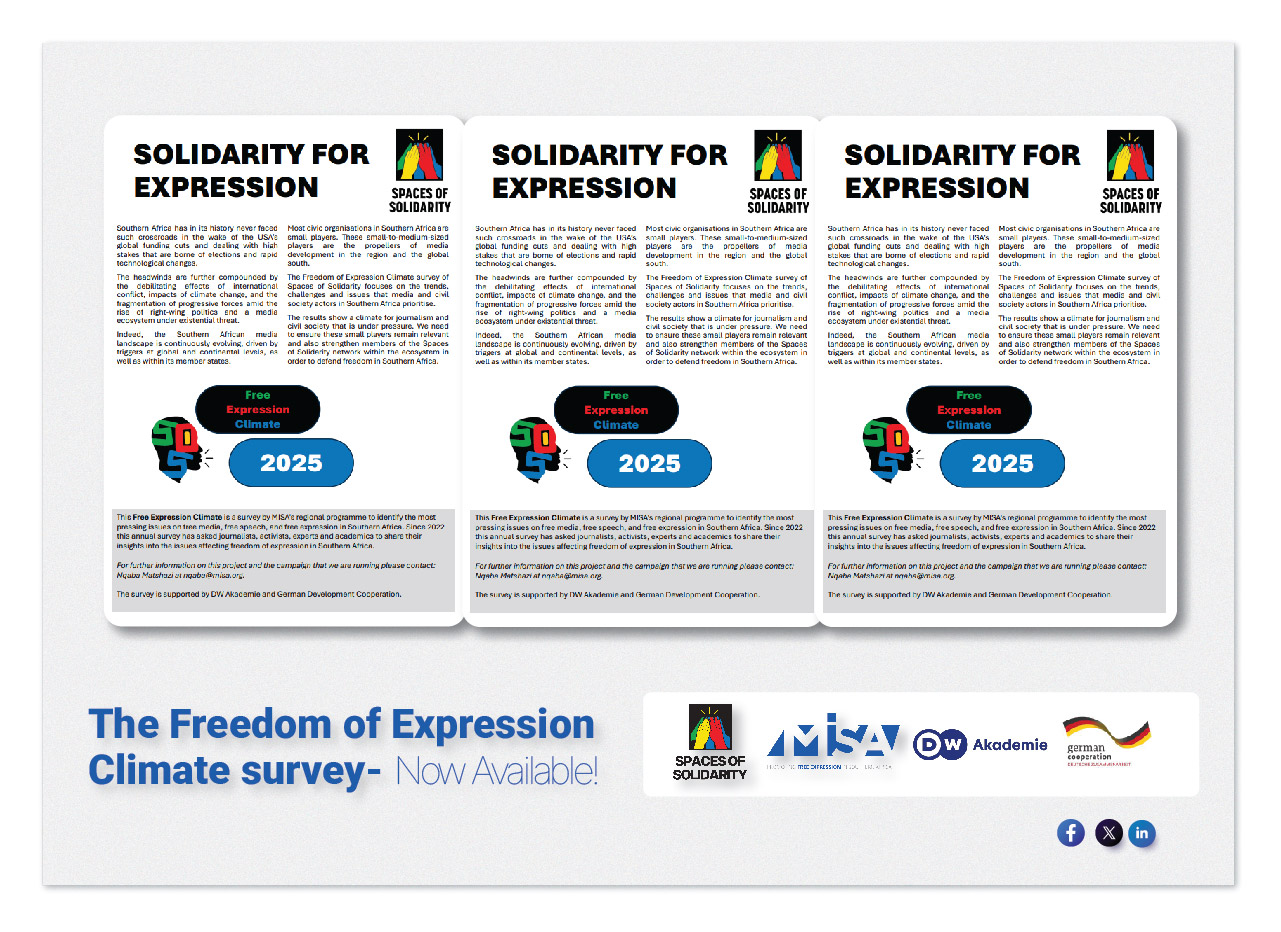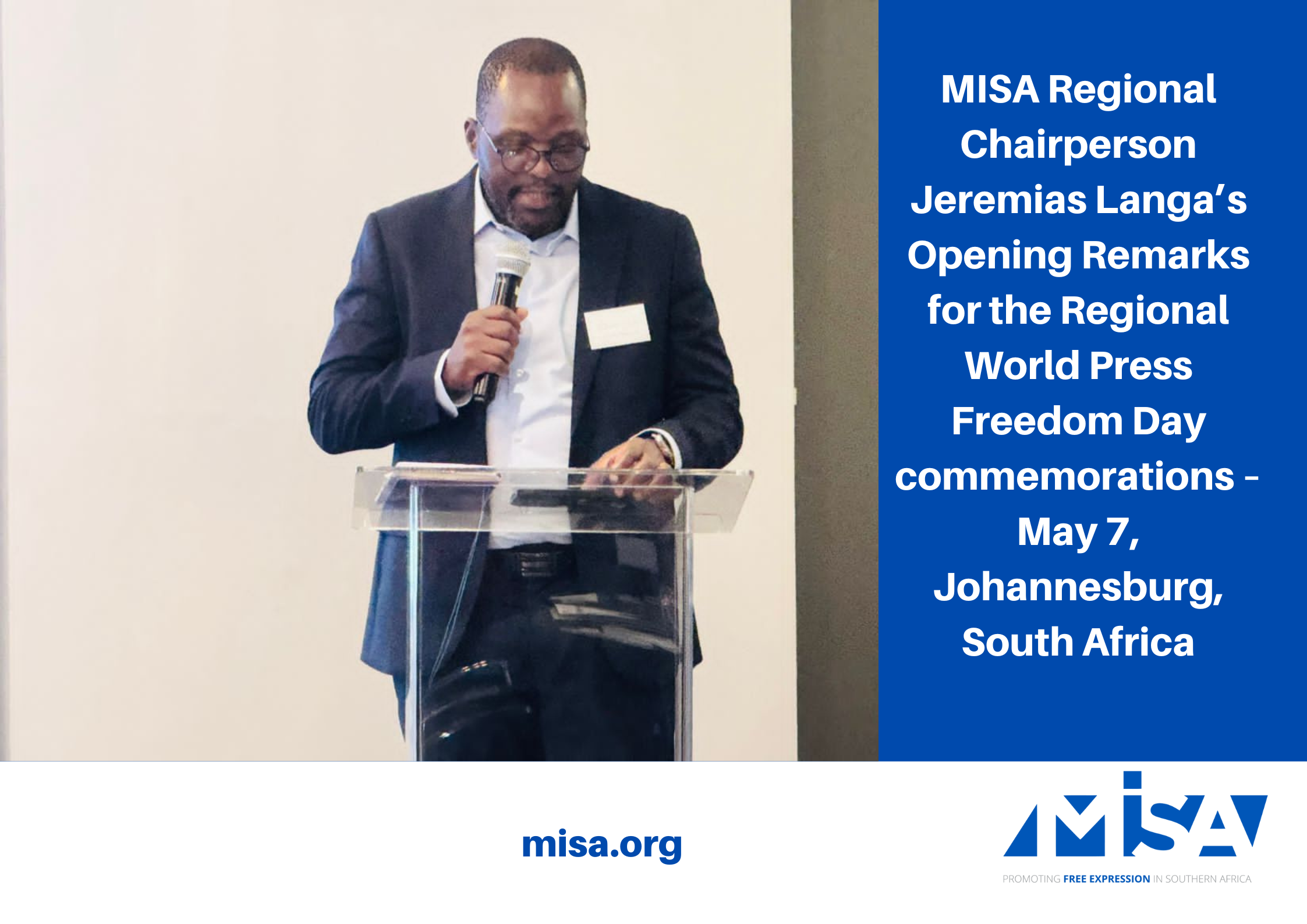The advent of Artificial Intelligence (AI) tools and digital platforms that influence how information is produced and shared has seen an increase in the number of women journalists being subjected to technology-driven abuse.
The abuse includes AI-generated deepfakes, doxxing, gendered disinformation, surveillance, and targeted online harassment. This form of abuse is known as Technology-facilitated Gender-Based Violence (TFGBV).
The theme for this year’s International Day to End Impunity for Crimes against Journalists (IDEI): Chat GBV: Raising Awareness on AI-facilitated Gender-Based Violence against Women Journalists, is therefore timely as it highlights this worrying issue.
The theme highlights the threats women journalists face in the digital space and the chilling effect this can have on freedom of expression.
A 2025 report by Gender and Media Connect revealed that 63% of surveyed women journalists had experienced TFGBV.
According to a report by ZimFact, nearly one in three women journalists (29%), have experienced sexual abuse in the newsroom. Online harassment remains largely unpunished, discouraging victims from speaking out and diminishing their participation in public discourse.
Zimbabwe’s Cyber and Data Protection Act has provisions that deal with cyber-bullying and harassment. Such provisions are progressive as far as women’s rights online are concerned.
MISA Zimbabwe reiterates its calls for all-hands-on-deck and urgent measures to prevent and eliminate violence against, not just female journalists, but women and girls offline and online.
IDEI 2025 highlights the need to strengthen the UN Plan of Action on the Safety of Journalists and the Issue of Impunity, with a particular focus on protecting women journalists in both digital and physical environments.
This day calls for renewed action from all stakeholders to tackle these threats through the implementation of safety mechanisms, policy reform, dialogue and platform accountability.
Ultimately, the goal is to ensure safer and more equitable online and offline environments for women journalists worldwide.
It is in that regard that MISA Zimbabwe engaged the government and legislators as part of efforts to strengthen the country’s legal framework to address online violence against women by implementing the African Commission on Human and Peoples’ Rights’ (ACHPR) Resolution 522.
Resolution 522 on the Protection of Women Against Digital Violence in Africa urges states to take serious action against digital violence to protect women online. This includes creating laws that recognise online abuses like cyberstalking, harassment, and sexist hate speech as forms of gender-based violence.
It also calls for research, awareness campaigns, and training for key players, such as law enforcement and the judiciary, to ensure effective prevention and response. States should also promote women’s digital education, enhance cooperation with service providers, and uphold data protection and human rights standards.
In this context, MISA Zimbabwe calls on all relevant stakeholders, including the government, constitutional independent commissions, media sector, civil society, and digital platforms, to:
- Implement gender-sensitive safety measures in newsrooms and online spaces to protect women journalists and promote gender equality in media.
- Enact legislation aligned with ACHPR Resolution 522, ensuring national frameworks comprehensively address digital violence against women.
- Create safer online and offline environments for all journalists through teamwork, accountability mechanisms, and advocacy awareness campaigns.
As we observe IDEI 2025, MISA Zimbabwe reaffirms its commitment to media freedom, gender justice, and the protection of all journalists.
Ending impunity for crimes against journalists, including AI-facilitated digital violence, is crucial for protecting democracy and fundamental human rights.
MISA Zimbabwe Statement on International Day to End Impunity for Crimes against Journalists
Passmore Kuzipa
Chairperson
MISA Zimbabwe













